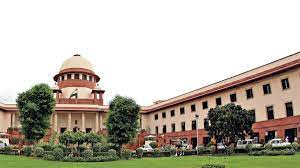Whereby Respondent No.1 was granted regular bail in trial proceedings numbered S.C. 1111/2021, pending before Ld. Addl. City Civil and Sessions Judge, Bengaluru. The said trial has emanated from Crime No. 151/2019 dated 21.12.2019 registered at Police Station Vyalikaval, Bengaluru under Sections 109, 120B, 201, 302, 450, 454 read with Section 34 of the Indian Penal Code (Para 2)
It appears that the sudden change of stance shown by the most vital witnesses, namely, the family members of the Deceased within 20 days of their examinationinchief cannot be a mere coincidence. The Appellant has been vigorously pursuing this appeal seeking cancellation of bail given to Respondent No. 1. In her examinationinchief, she has specifically named Respondent No. 1 as the main conspirator in the murder of her daughter. Her sudden somersault, therefore, cannot be easily detached from the chain of allegations made against Respondent No. 1 in the past, of influencing the police, hiring goons, repeatedly assaulting the Deceased, and various attempts to take away her life. All these accusations, for the limited purpose of these proceedings, do suggest that Respondent No. 1 has the potential to influence the investigation or the witnesses who were slated to depose against him. The seriousness of allegations levelled against Respondent No. 1 by the Deceased during her lifetime or by the Appellant before the Police or in this appeal ought to be evaluated against this backdrop. (Para 19)
The delicate balance in the case of long incarceration is drawn by releasing a suspect on bail on such terms and conditions that will ensure that a fair and free trial is not hampered. However, if it is found that an undertrial has attempted to misuse the concession of bail either by influencing the witnesses or tampering with the evidence or trying to flee from justice, such person can be committed to custody by withdrawing the concession of bail. (Para 20)
Applying these parameters to the facts and circumstances of the case in hand, we are satisfied that there is a prima facie proximity between the grant of bail to Respondent No.1 and an emboldening opportunity for him to win over the witnesses. Respondent No.1, therefore, does not deserve to enjoy the concession of bail at least until all the crucial witnesses are examined. The privilege of liberty extended to him, thus, deserves to be withdrawn for an effective, fair, just and unbiased conclusion of trial. (Para 25)
SUPREME COURT OF INDIA
2023 STPL(Web) 373 SC
[2023 INSC 943]
Munilakshmi Vs. Narendra Babu & Anr.
Criminal Appeal No. 3297 of 2023 [Arising Out Of Special Leave Petition (Crl) No. 3312 Of 2021]-Decided on 20-10-2023
https://stpllaw.in/wp-content/uploads/2023/10/2023-STPLWeb-373-SC-1.pdf







